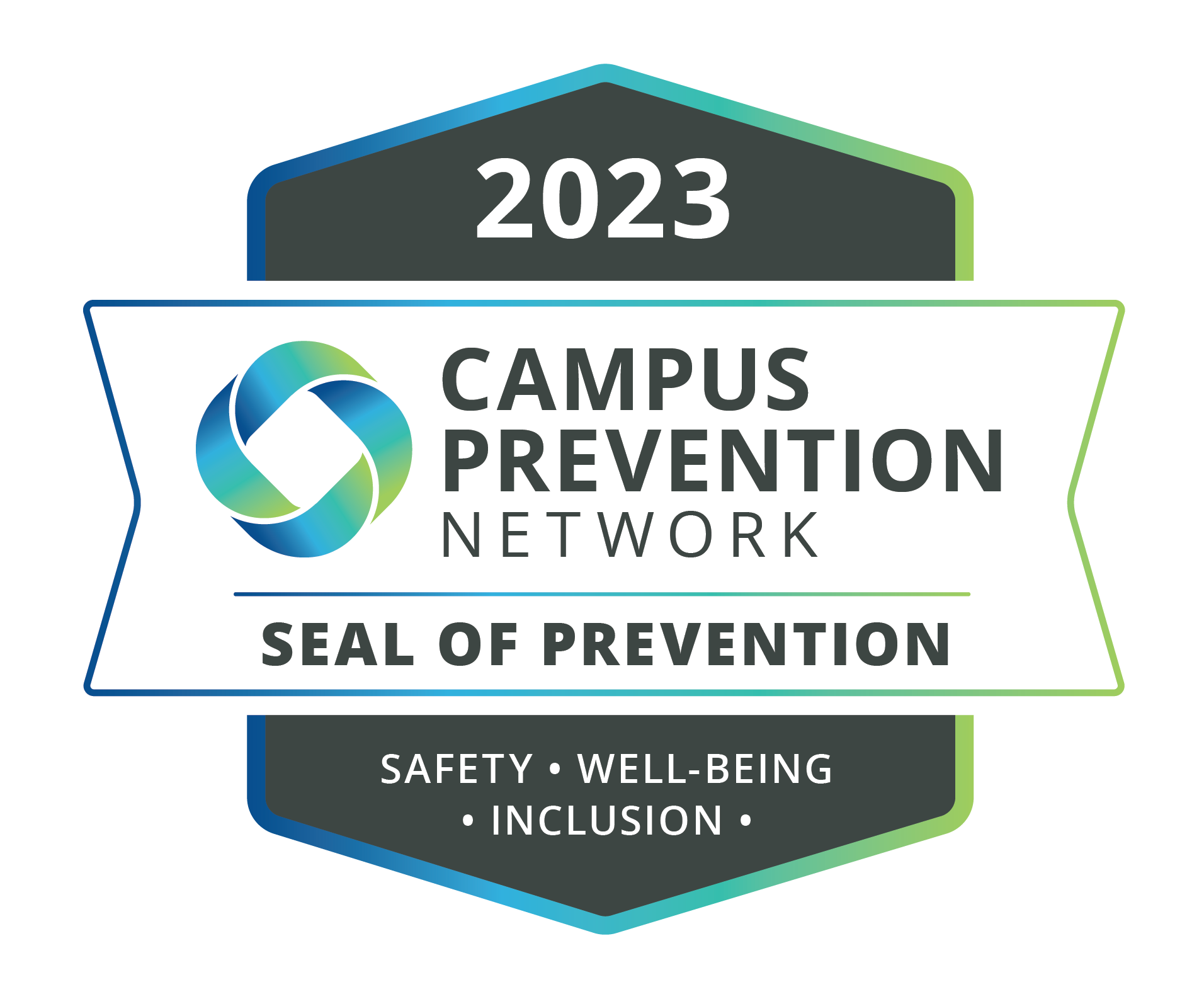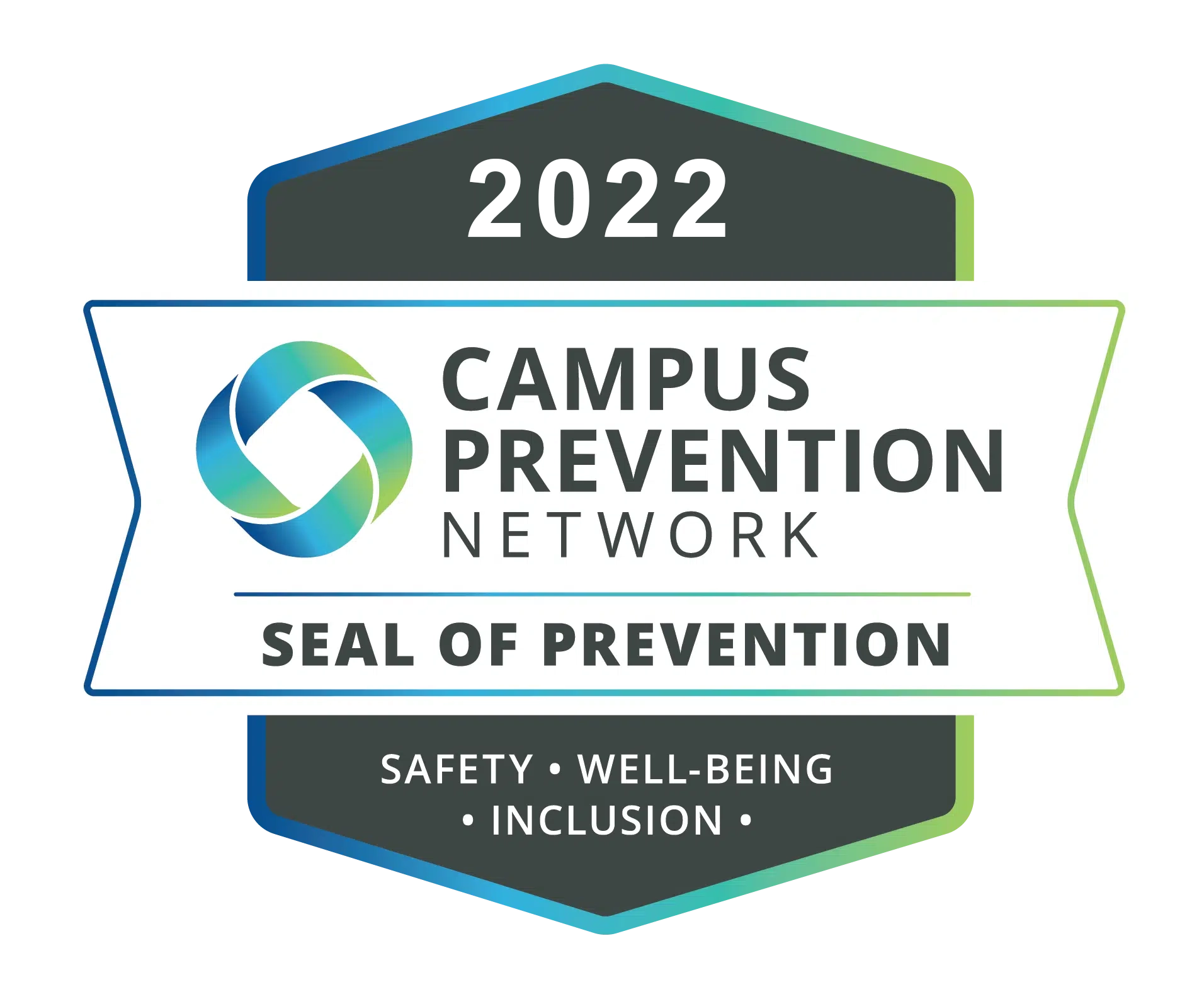Title IX Training
Full Time/ Part Time Staff, Full-time and Adjunct Faculty, Coaches, and College Work Student Training
All full-time and part-time staff, and full-time faculty are required to complete biennial Title IX Training. Information about their training will be sent out to employees via email. All new employees are required to complete their training within three months of hire.
Preventing Discrimination and Sexual Violence on Campus
Staff and faculty are provided a comprehensive training on preventing discrimination, harassment, and sexual violence through an e-learning format with Vector. All staff and faculty receive this training on a biennial basis. The Clery Act requires all higher education institutions to receive training on sexual assault, dating and domestic violence, and stalking. The course educates faculty/staff members about sexual assault, domestic and dating violence, and stalking, as well as how the university prohibits such offenses and employee responsibilities to respond.
Specifically, the course:
- Educates employees to recognize sex discrimination.
- Defines discrimination and sexual violence.
- Helps employees protect against sexual violence.
- Explains prohibitions against intimate partner violence and stalking.
- Sends a strong message that sex discrimination and violence are prohibited by the university.
- Explains the importance of reporting sex discrimination promptly.
- Covers the complaint procedures available and employee rights.


Unlawful Harassment Training
Wilmington University provides a comprehensive training through Vector on unlawful harassment prevention training, utilizing graphic novellas to highlight harassment issues specific to Higher Education settings. These explain protected categories, including the Genetic Information Discrimination Act (GINA), cover the new Supreme Court ruling extending the prohibitions on retaliation, and explore emerging issues like electronic harassment. Our online harassment training uses recent examples of real-life Higher Education harassment cases to help learners retain the information and understand how important harassment prevention training is. We even include tips to help faculty and staff recognize and intervene when they see behaviors indicative of student-on-student harassment.
These unlawful harassment training courses that will help cultivate a campus environment free of sexual harassment and unlawful harassment because of race, color, religion, religious creed, ancestry, national origin, age, sex, marital status, citizenship status, military service status, sexual orientation, gender identity or expression, medical condition, disability and/or any other status protected by law. We offer the following harassment training versions to ensure that the information and scenarios used in our unlawful harassment training are tailored to the learner’s role at your institution:
- Harassment and Discrimination Prevention for Higher Education Faculty
- Harassment and Discrimination Prevention for Higher Education Staff
- Harassment and Discrimination Prevention for Higher Education Student Employees
Training Summary for Students
Required training
First time, full time students are required to participate in a Title IX training. This state-mandated training educates students on the interconnected issues of sexual violence, substance abuse, and healthy relationships, to promote a healthier and safer campus environment for everyone. Students who are required to participate in this training are contacted directly by the Title IX Coordinator, Dr. Linda Van Drie Andrzjewski.
To complete the training, students complete a brief course in Canvas. After completing the training module, students will have to complete a short quiz and score at least 80%. It is encouraged for students to review the questions marked incorrectly after the quiz. For students who fail to complete the training by the deadline, a “hold” will be placed on their MyWilmU account, preventing them from registering for future courses.
Additional training
To help create a safe environment for you and other students at Wilmington University, new students are sent two online trainings through EverFi called Sexual Assault Prevention and Alcohol Edu. The Sexual Assault Prevention training educates and prepares students to recognize and respond to sexual assault and harassment in a variety of environments including on campus, in the workplace, and at home. Alcohol Edu is a research-based, online education program designed to assist students in making healthy decisions regarding alcohol use in college. This program includes information on bystander intervention, BAC (blood alcohol concentration) levels, and strategies for non-drinkers.
Students will be sent these trainings through their myWilmU email. For questions, please contact Student Life at StudentLife@wilmu.edu and (302) 356-6974.
The Clery Act and Campus Security Authorities Training
Wilmington University provides annual training to all Campus Security Authorities (CSA’s). This course is designed for everyone who is designated as a CSA under the Jeanne Clery Campus Safety and Security Act (Clery Act). CSAs have the responsibility under the Clery Act to act as a resource to report campus crime incidents and statistics and, in turn, report incidents to University officials. This course provides CSA’s information about the Clery Act and what they are required to report.
The course specifically,
- Helps individuals understand why they are designated as a CSA.
- Teaches CSAs when, how, what, and to whom they must report.
- Explains the responsibilities of the University under the Clery Act.
- Defines our Clery geography for reporting considerations.
- Provides advocacy training for professional and helpful victim interaction.
All Campus Security Authorities (CSA’s) will receive an email in Fall notifying them as to how to access the training.
Title IX Personnel
Title IX Personnel receive annual training through D. Stafford and Associates, LLC. These materials are copyright of D. Stafford & Associates, LLC 2020 D. STAFFORD & ASSOCIATES. All rights reserved. Any distribution or reproduction of part or all of the contents in any form is prohibited other than the following:
- As required by 34 C.F.R. § 106.45(b)(1)(iii) and § 106.45(B)(10)(i)(D), this material in its entirety may be posted to the website of the institution in which you were associated with at the time in which you were enrolled in this training. D. Stafford & Associates gives permission for clients to convert the provided documents as necessary to be ADA-compliant.
- Public inspection upon request.
